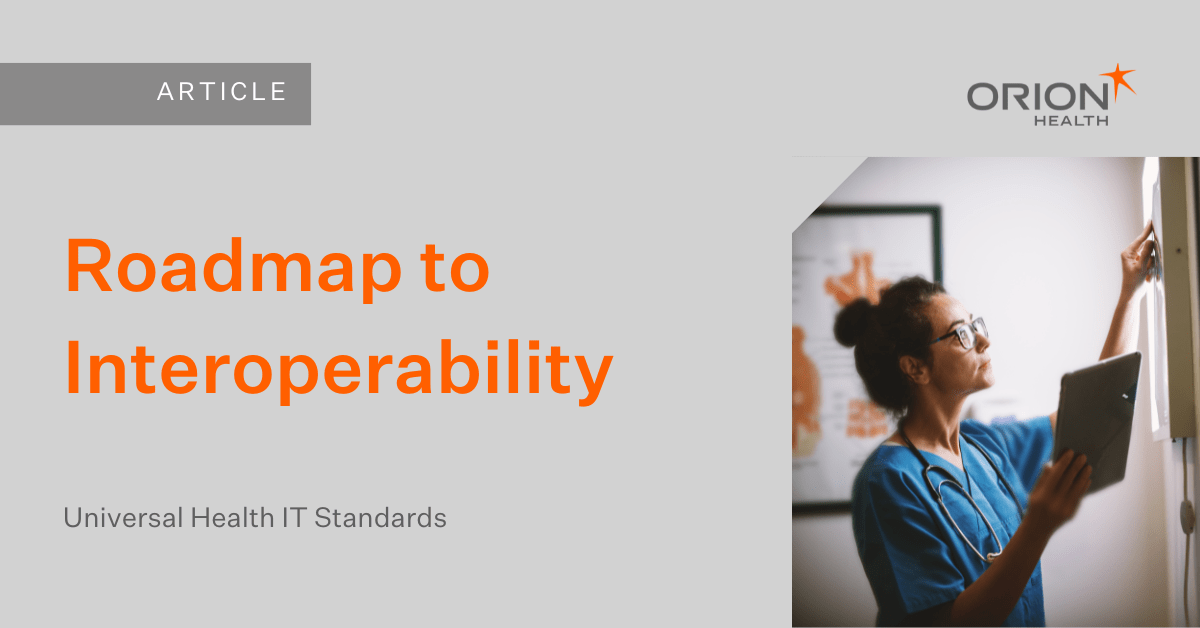Reflections on the Shared Care Record Summit 2024
On April 16th & 17th, 2024, the leading minds in shared care records gathered at the ICC in Birmingham to exchange best practices, address common challenges, and envision the future of these assets so crucial to delivering seamless patient care. Here, we delve into the insights gleaned over the course of two impactful days.
A strong, purposeful community
Orion Health customers NHS Gloucestershire ICB, Joined Up Care Derbyshire, Connecting Care, Cambridgeshire and Peterborough ICS and NHS South Yorkshire ICB formed part of the 300-strong crowd. With the majority of shared care records in the country present and the power of collaboration, the desire for a national information sharing arose. This plea for a unified framework aims to streamline the process, reducing the inefficiencies of individual localities navigating these agreements. The summit highlighted the potential for national frameworks to bolster local programs, enabling smoother collaboration across the board.
‘Doing’ within shared care records
From the wealth of case studies and patient stories shared, it was evident that shared care records are vital to achieving integrated care. Discussions surfaced around the challenge of driving user adoption, revealing a significant gap between the most and least utilised records. The key differentiator? The integration of “doing” functionalities within the shared care record system. Evolving beyond read-only, these records now encompass care planning, care pathways, patient lists, multidisciplinary virtual wards, and other tools for care coordination. Embedding these tools into users’ daily workflows cements the shared care record as an indispensable component of patient care. An example of this approach is seen in Northern Ireland, where the National Diabetes Care Pathway seamlessly integrates into the Northern Ireland Electronic Care Record, improving the treatment and care of more than 100,000 patients across the country.
The ongoing quest for validation
One barrier to progress that was discussed was the continued need for shared care records to justify their existence. Despite more than a decade of positive testimony from patients and care professionals alike, shared care records still find themselves in the position of needing to validate their existence continually. Unlike Electronic Patient Records (EPRs), which have garnered widespread acceptance as critical systems, shared care records must continuously make the case for funding and support. If we’re serious about delivering integrated care, shared care records must be the platform upon which this is built. If we accelerate progress towards caring for more patients away from the acute setting, coordinated through the shared care record, we will free up capacity. However, shared care records need their funding future to be secured.
Working in partnership
During a workshop led by Jane Owens, Digital Transformation and Implementation Lead at Joined Up Care Derbyshire, and Ian Binks, Business Development Director at Orion Health, the necessity of collaborative partnerships was highlighted. The traditional separation between the NHS and suppliers must give way to true collaboration, centred on shared aims and objectives with transparency and honesty. By fostering open communication, mutual respect, and clearly defined expectations, we transcend transactional relationships and pave the way for optimal outcomes.
A PHM future
The potential of population health management (PHM) was exemplified in a session on from Health Innovation Manchester on a programme that identified patients with cardiovascular disease who were not prescribed statins and targeted them with the cholesterol-lowering drug Inclisiran, to reduce the risk of heart attack or stroke. Shared care records hold a treasure trove of patient information, which can be analysed to identify actionable insights and then predict care needs for individuals, cohorts and the entire population. As a collective, we must prioritise the development of shared care records into tools for population health management, to deliver better health outcomes, improve patient experience, and boost system efficiency. The attendees expressed that information governance should not be holding us back here, with the thinking being that population health management is not performance management, operational management or anything other than a tool for the provision of direct care, within the intended use of a shared care record.
A collective commitment to impactful change
The Shared Care Record Summit 2024 showcased remarkable strides made across ICS regions. But there’s still so much more to do. Emma Robertson, a courageous advocate living with incurable breast cancer, shared her poignant account of numerous failings in her care since her diagnosis in 2013, arising from poor management of, errors with or lack of access to her information. To hear Emma’s powerful story, please view her talk here from 7:20:00. Participating in the Shared Care Record Summit 2024 was a privilege. As shared care record vendors and ICS regions, our strength lies in unity. It is incumbent upon us to continue collaborating, driving improvements, and championing the cause for patients like Emma. Together, we can pave the way for a brighter, more integrated future in healthcare.




